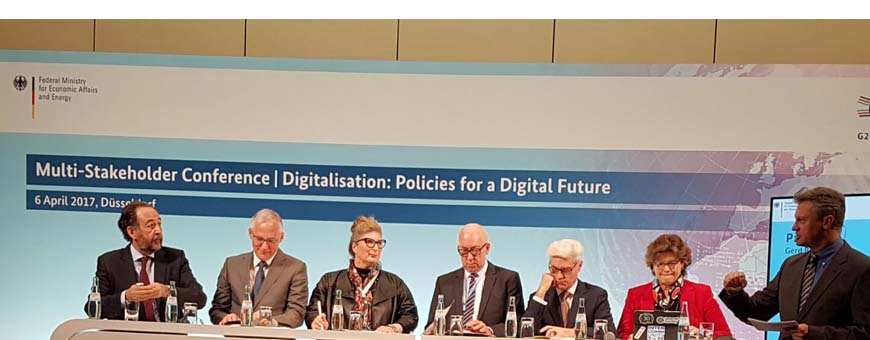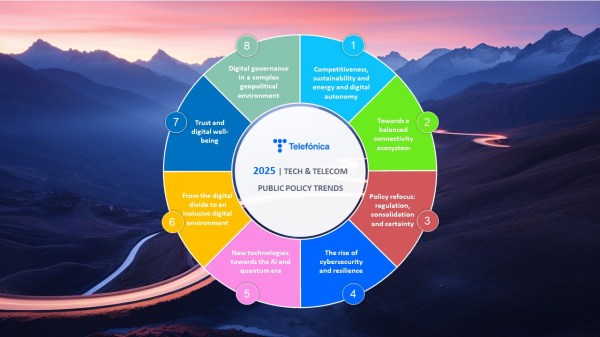 José Ignacio Tortosa
José Ignacio Tortosa
Carlos López Blanco, Telefónica’s Global Head of Public Affairs and Regulation, recently participated at the first ever meeting of the G20 Digital Ministers in Düsseldorf, entitled ‘Digitalisation: Policies for a Digital Future’. The Group of Twenty (G20) comprises 19 countries plus the EU and is the most important global forum for international cooperation on financial and economic issues.
In particular, Mr. López Blanco took part of the “Encouraging transparency – Creating confidence in the digital world” panel where he explained that the huge amount of generated data is what is really new in our world, and this the transformational key of current business models. The “always connected” premise represents a huge source of information increasing every day. The amount of data we generate is growing exponentially: “more data is generated every 18 months than in the history of humanity” stated. He also pointed out that all this information is currently processed and will be “more” processed in the future, as the current 80 exabytes of data processed, will be 800 exabytes processed in 2020, ten times more in only 5 years (1 exabyte = a hundred thousand times the Library of USA Congress).

Carlos López Blanco, first on the left side.
This new Society, the Data Society, and the new businesses created around it, is based in the trust and digital confidence of users said the executive. Trust is key, because data introduces some risks: hackers’ attacks, identity theft, data leaks. Companies like Telefónica, must win and keep customers’ trust. There should be principles to use the data of customers.
“Telefónica has developed 3 guiding principles on data: Security, Transparency and Empowerment. Security and privacy are two sides of the same coin. They are directly related and the balance between them is critical for strengthening digital confidence. Telecom operators have a long history of success in this task: guaranteeing both the privacy of their users and the security of their networks.”.
“The digital economy is increasingly the same thing as the economy at large. Similarly, to distinguish between cybersecurity and security in general is no longer helpful. Cybercrimes are crimes and the same rules, principles and values should be applied in offline and online contexts” was pointed out during Telefónica’s intervention.
Besides the guiding principles of security and privacy, we also see space for updating the legislation on consumer protection: we believe consumer protection and its relationship with the internet, should be linked to transparency, commented Carlos.
“Transparency means explaining clearly to customers what data is being processed and why. Our guiding principle of transparency means that we will use data to help them, enhancing their services and generating value for them, while protecting them and respecting their individual wishes for varying levels of privacy” said Carlos.
Last but not least, the executive talked about the third principle, which is empowerment, which means a step ahead. “We believe customers must have a choice: we want to give back the control of its digital life. People should know how their data is used, and have the control. Empowering customers referring to data, means to put customers in control of their data. The customers should have the choice: protect its privacy or stop being tracked.”
To conclude, the executive also stated that Telefónica is aware that the digital innovation and growth depends upon the willingness of people to share their data and this means we have to keep their data safe and secure.






